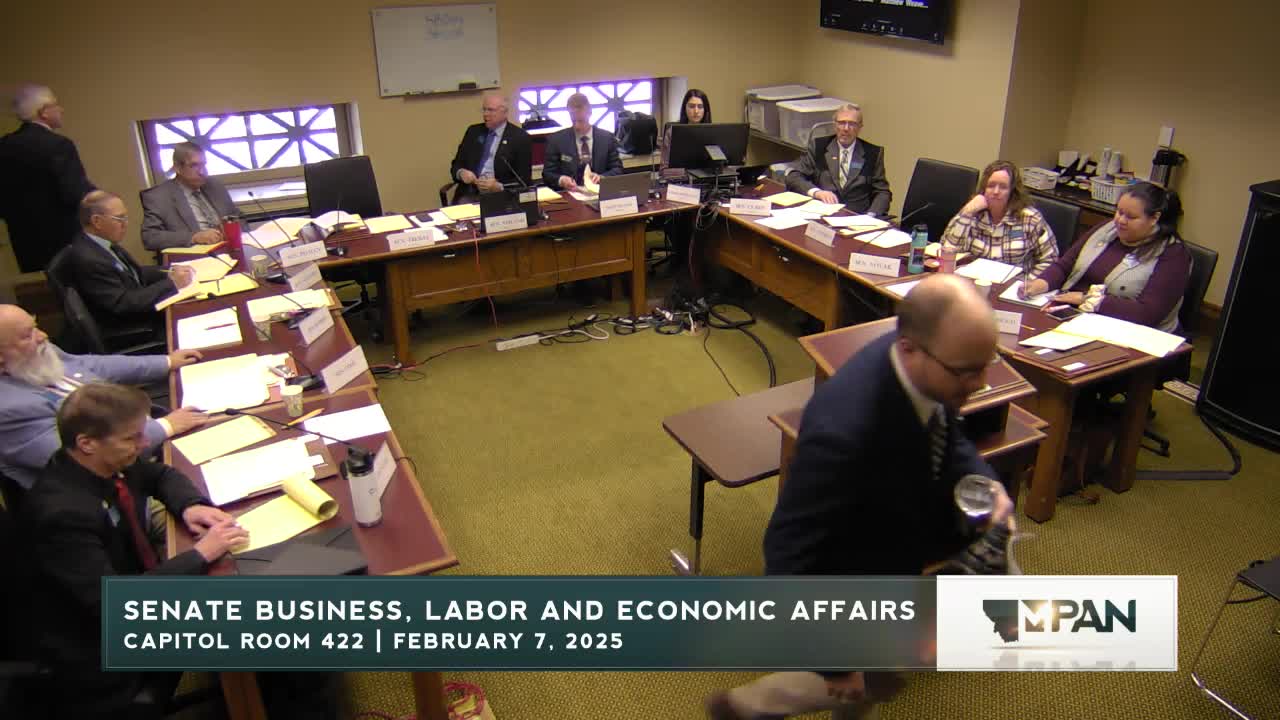Bill to close loophole for survivor benefits of children of fallen public safety officers wins broad support at hearing
Get AI-powered insights, summaries, and transcripts
Subscribe
Summary
Senate Bill 208 would ensure dependent children do not lose survivorship retirement benefits if they turn 18 while still in high school. Proponents from public‑safety unions and the state retirement administrator described the change as a narrow fix to an apparent drafting oversight.
Senator Laura Smith, sponsor of Senate Bill 208, told the Senate Business, Labor & Economic Affairs Committee the bill “bridges the gap for dependent children who are receiving a retirement benefit earned by a deceased parent.” Smith said the change was prompted by a rare but consequential situation in which a child who turned 18 while still in high school lost statutory eligibility for survivorship benefits.
What the bill does: The measure would amend survivor‑benefit language in three defined‑benefit public‑safety retirement systems (highway patrol, municipal police and firefighters) so that a dependent child who turns 18 while still enrolled in secondary school does not lose the benefit solely because of age. Under current law those benefits continue until age 24 for a child attending a post‑secondary institution; SB208 would remove the unintended gap for 18‑year‑olds still in high school.
Support and rationale: Carter Marsh of Montana Professional Firefighters, William Hollahan of the Montana Public Employee Retirement Administration (MPERA) and representatives of police associations told the committee the change is a narrowly targeted correction to statutory language and does not widen eligibility beyond the original intent. Hollahan said the issue is “a minor deficiency in statute that can have a significant financial impact on the high‑school son or daughter of a fallen officer.”
Incidence and scale: MPERA staff told the committee that instances are rare. Over the last 10 years the municipal police retirement system had four children receive survivorship benefits (three under age 18 and one attending post‑secondary education), the highway patrol system had two children under age 18 receiving benefits, and the firefighters’ system had one case recalled by the retirement fund staff. Hollahan said he could recall a single situation in his 10 years when a child’s benefit had to be stopped mid‑senior year because the statute was written as it is.
Questions and clarifications: Committee members asked whether other classes of first responders (for example, EMS personnel) are covered; Hollahan said EMS are not in these three systems and would fall under the general public employee retirement system (PERS), so adding EMS to these systems would require actuarial analysis.
Outcome: The hearing closed with unanimous support from public‑safety representatives in the room and an urging of a due‑pass recommendation from the retirement board’s representative. The committee did not take a floor vote on the bill during the hearing.
Ending: Sponsor Laura Smith described the bill as a targeted statutory fix to keep faith with families of officers killed in the line of duty and urged committee members to support a due‑pass on the bill.
